As I glance around my Omaha yard from the mailbox, my eye catches bright yellow blots dotting the front lawn. Hmmm … I know this plant. I know its flowers. I know its leaves. And I can eat them. All of them!
What is it?
Why, it is the dandelion, of course!
No, don’t stop reading the blog, stay with me here, please.
Look, I know the dandelion is the scourge of yards, lots, flower beds, gardens and fields this time of year here in Nebraska. But that scourge – (Taraxacum officinale) – can be picked, washed and made into a terrific, highly nutritious, organic-type salad. Provided, of course, that those dandelions haven’t been treated with harmful chemicals or fertilizers, and there’s no road residue on them, or you haven’t let your pet relieve itself or defecate on them. Also, if you have diabetes, gall bladder problems, plant allergies or take blood thinners or diuretics, or are taking any other prescription medications, consult your physician before ingesting the leaves or any other part of the dandelion plant. The unregulated dosage of dandelion may affect your medication, according to Dartmouth University.

With all bases covered, allow me to inform you about dandelions and then, maybe you’ll join me in preparing a simple, but yummy dandelion leaf salad topped off with several dandelion flowers.

If you’re wondering, the dandelion, a member of the daisy family, is a perennial, herbaceous plant. It has long, deeply-toothed, lance-shaped leaves. The plant got its name from the leaves. In the Old French language: Dent-de-lion translates to the tooth of the lion. Dandelion leaves run about 3 to 12″ long, and are roughly 1/2 to 2-1/2″ wide. The grooved leaves funnel rain to the root.
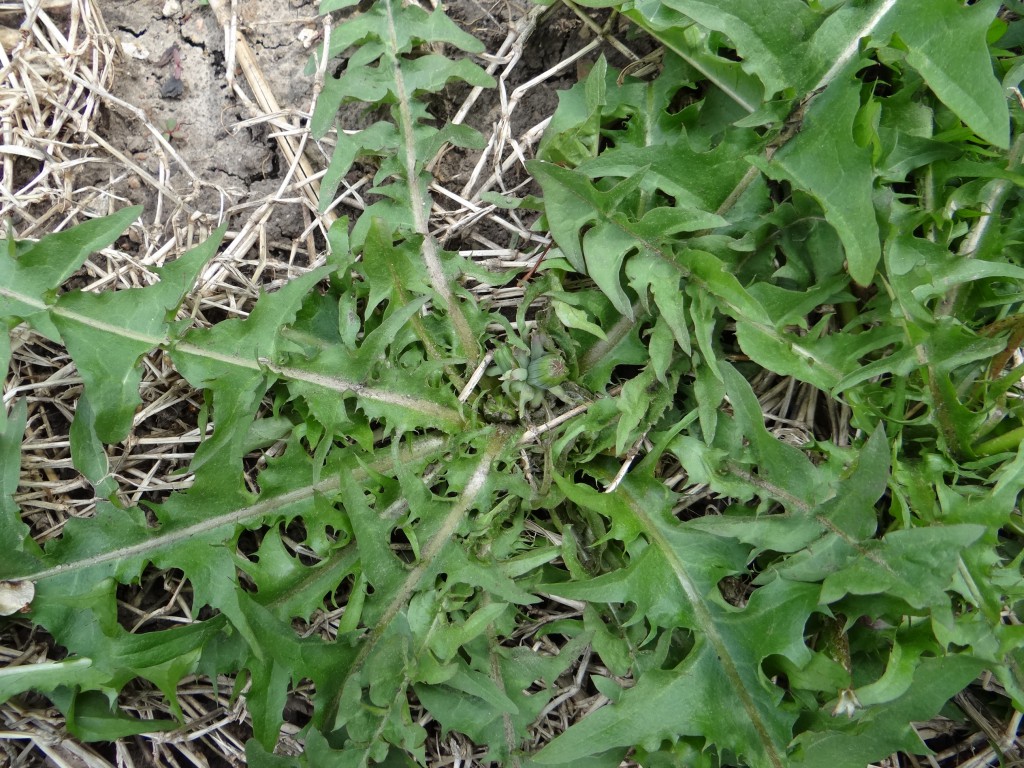

Historically, the dandelion is native to Eurasia. The Pilgrims and other early settlers brought the plant to America from Europe in the 1600s. Pioneers carried seeds from their beloved plant and planted wherever they settled in the west.
Medicinally, dandelion roots and leaves were used to treat liver problems. Native Americans also boiled dandelion in water and took it to treat kidney disease, swelling, skin problems, heartburn, and upset stomach. In traditional Chinese medicine (TCM), dandelion has been used to treat stomach problems, appendicitis, and breast problems, such as inflammation or lack of milk flow. In Europe, dandelion was used in remedies for fever, boils, eye problems, diabetes, and diarrhea.
Today, herbalists recommend using the roots to stimulate the appetite, and for liver and gallbladder problems. Dandelion leaves are used as a diuretic to help the body get rid of too much fluid.
From a food perspective, dandelion leaves are used to add flavor to salads, sandwiches, pizzas and teas. The roots are used in some coffee substitutes, and the flowers are used to make wines and garnish salads. These flowers can even be friend up into fritters! The mature flowers add color, texture, and sort of an unusual bittersweet flavor to an array of foods.
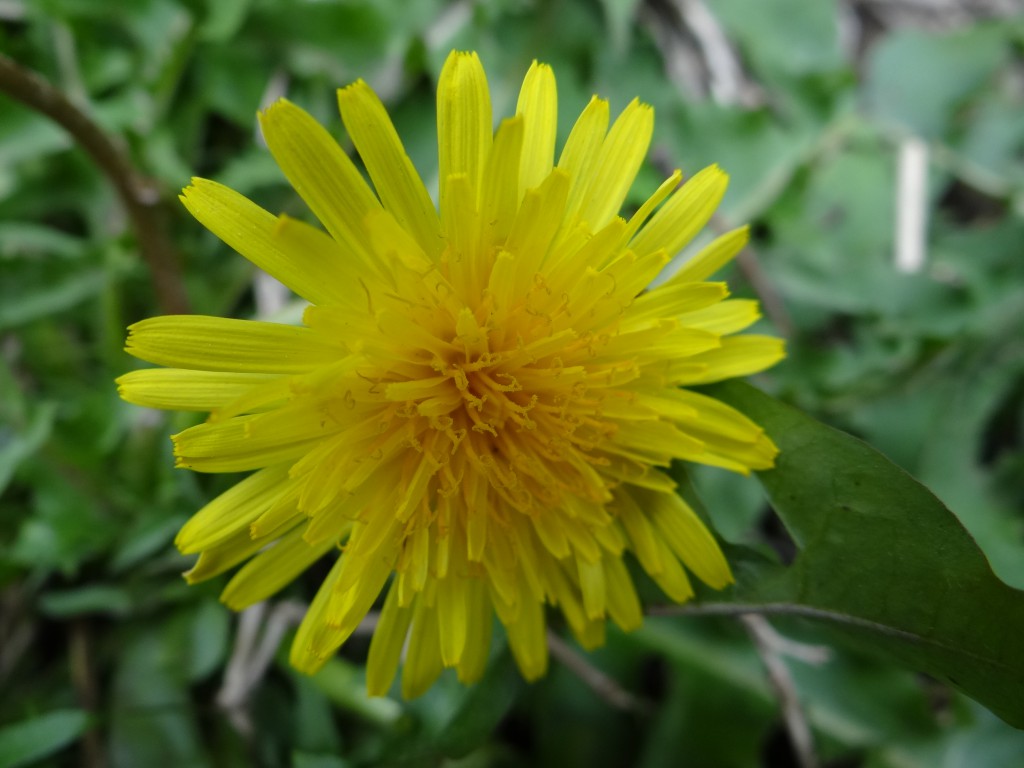
The leaves are more nutritious than virtually anything you can buy in the supermarket. According to the University of Maryland Medical Center, dandelions are low in calories, packed with vitamins and nutrients and higher in beta-carotene than carrots. Health experts and researchers there say dandelions are chocked full of vitamins A, B, C, and D, as well as minerals, such as iron, potassium, calcium and zinc. The iron and calcium content is phenomenal, they add, greater than that of spinach. Dandelion greens also come loaded with lutein and zeaxanthin which are two nutrients important for healthy eyesight.
When it comes to nutrition, why not consider using a wild, free, scrumptious-tasting plant that grows on virtually every lawn, right?

It’s best to collect dandelion leaves now, in the springtime, when they’re at their tastiest, before too many flowers appear. You can gather them again in late fall, if desired. After a frost, their extremely tart flavor seems to disappear. Dandelions growing in rich, moist soil, with the broadest leaves should be sought. Pick out the youngest ones, and avoid plants with more than one flower.

There are avid foragers who eat the green leaves also in summer and fall, when they have the potential to be quite bitter. The strong, sharp flavor can be boiled out with a couple changes of water. Dandelion greens are splendid in salads. They can even be sauteed or steamed. I’ve heard a few folks say the leaves of dandelions taste like chicory and endive, with an earthy heartiness coupled with hints of bitterness. Some say the taste of dandelion resembles a slightly bitter green like arugula, a yellowish-flowered Mediterranean herb of the mustard family referred to as the garden rocket that is cultivated for its foliage and used most notably in salads.
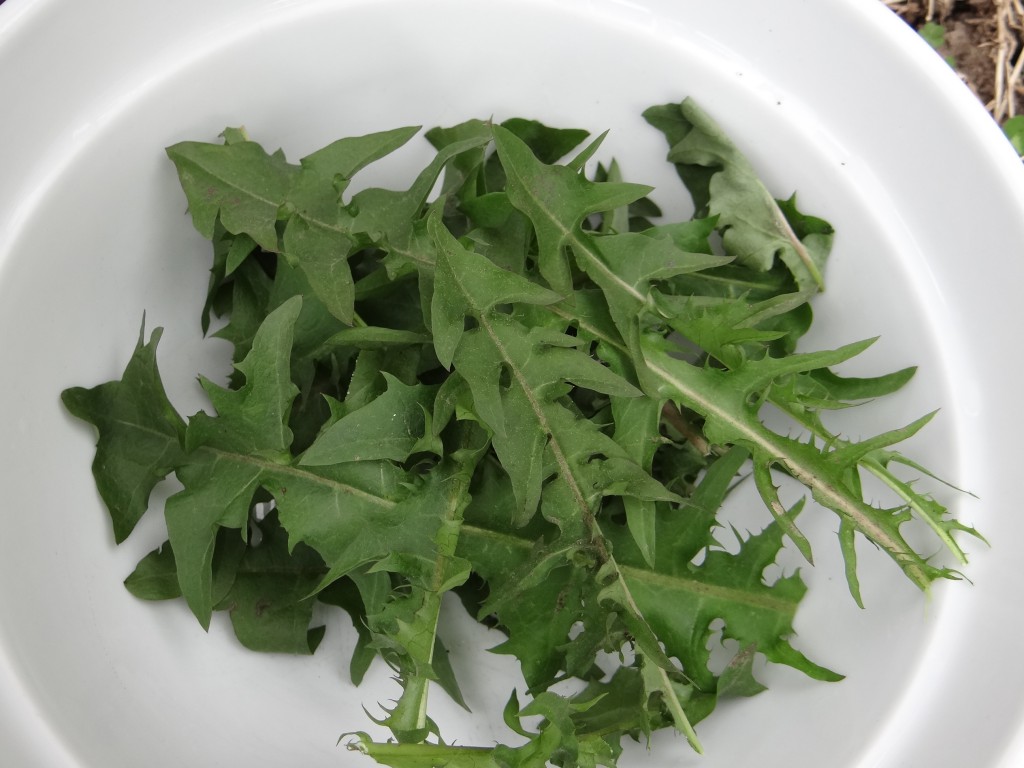
The dandelion leaf salad is a fantastic introduction to eating things that grow wild near where you live! It is so scrumptious, you may soon find yourself with a new perspective on what you once considered to be an ongoing, pesky, spring problem in your yard. Below is a that delish dandelion salad recipe that I think you should try.
‘DANDY-LION’ SALAD
Ingredients
– 1/2 pound cut and torn dandelion green leaves
– 1 shallot or 1/2 red onion, chopped
– 2 tomatoes, chopped
– 1/2 teaspoon dried basil
– salt and pepper, if desired
Directions
Wash dandelion leaves and flowers well with water. In a medium bowl, toss together dandelion leaves, shallot or red onion, and tomatoes. Season with basil. Add salt and pepper to taste, if desired. Apply your favorite salad dressing.
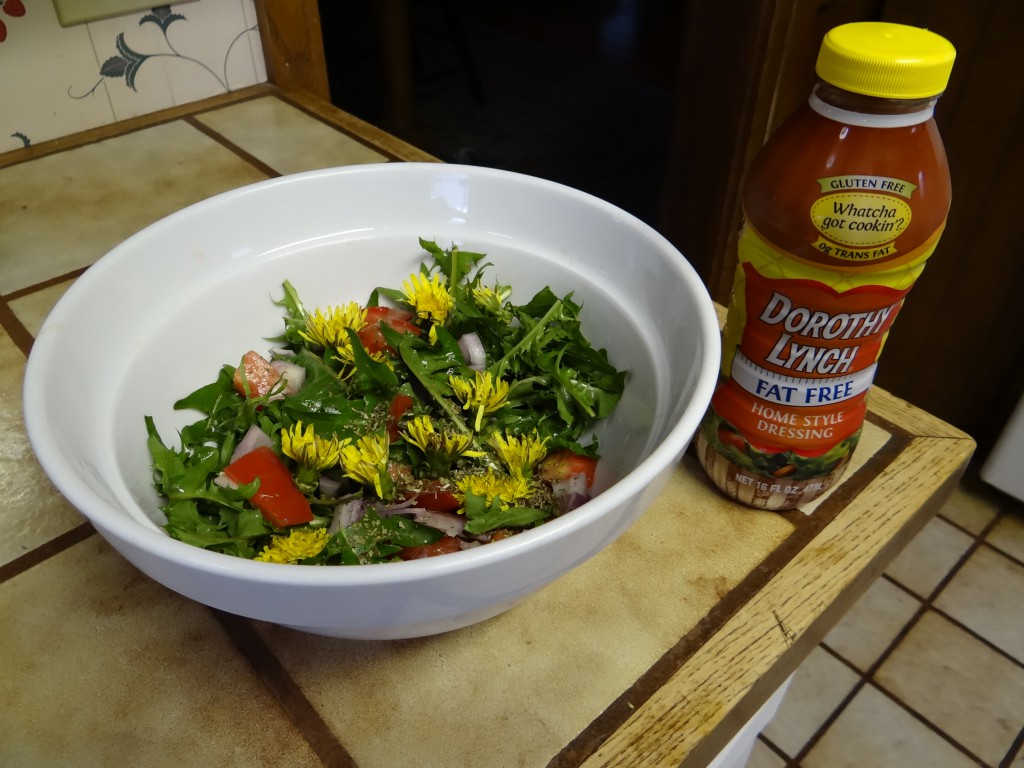
Enjoy! I’m not sharing this salad with anyone, HA! GW
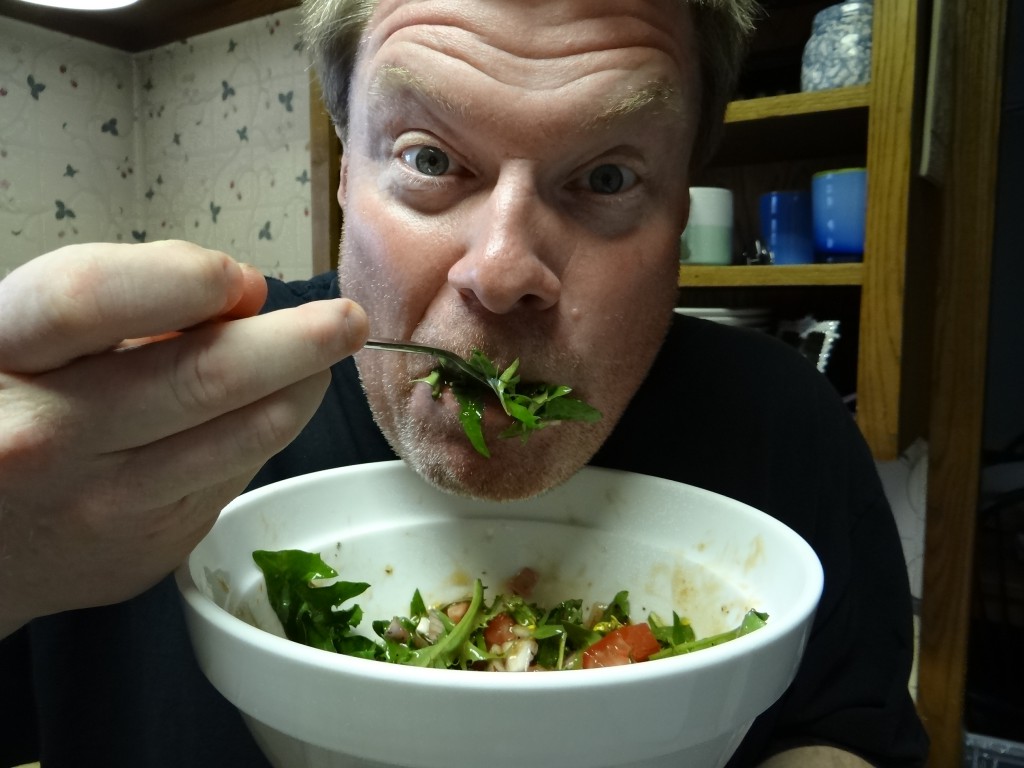
Dandelions have supporters beyond me. Consider what others have said.
Katrina Blair, author of The Wild Wisdom of Weeds, refers to dandelions as “the royalty of weeds” and describes how pioneers came to North America with dandelion seeds in their pockets, knowing the plant could help provide the health and sustenance they would need to survive in unknown territory.
Jack Walters of Indiana University Southeast has written: Evidence in Support of Saving the Dandelion. In the abstract for his paper he writes, “Dandelions should be saved for three reasons: to destroy them is emotionally draining, to poison them threatens the food chain, and to co-exist with them brings beauty and nutrition into our lives.”
The post Dandelions: They’re What’s For Dinner! appeared first on Nebraskaland Magazine.
















